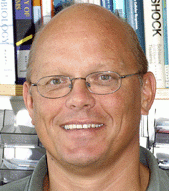
Bernd Bukau
Center for Molecular Biology of Heidelberg University (ZMBH) and German Cancer Research Center (DKFZ)
Germany
EMBO | EMBL Symposium
Late registration for VIRTUAL participation is possible. Please contact Diah Yulianti for more information.
This conference will take place at EMBL Heidelberg, with the option to attend virtually. Participants will be requested to show a proof of a negative COVID-19 from a supervised, negative antigen / PCR COVID-19 test, not older than 24 h for antigen and 48 h for PCR tests upon arrival at the venue on the first day only.
Before the genetic information stored in DNA can be used to direct cell growth and metabolism, it has to be transferred into RNA. Messenger RNAs (mRNAs) that code for proteins and noncoding RNAs are key components in the transmission of genetic information in all life forms – from viruses to complex mammalian organisms. Exciting recent findings now reveal a new layer of information added to RNAs in the form of chemical marks (the epitranscriptome) that play a critical role in gene expression control.
Following the great success of the virtual 2020 edition of this long-standing symposium, we are looking forward to returning to an in-person meeting for 2022, bringing together leaders in the RNA field, post-docs and students, with the aim of disseminating and discussing the most recent results. The programme will include, among others, sessions on transcription, RNA processing and modification, mRNA export and localisation, mRNA surveillance and decay, translation and the control of mRNA expression by microRNAs.
“The Complex Life of RNA is the key event in RNA biology. It is incredibly difficult to represent this complex area of knowledge, but the organisers succeeded in decomposing the complexity!” – Alexey Moskovtsev, Institute of General Pathology and Pathophysiology, Moscow, Russia
“Mind blowing science fresh from the bench and presented by top experts – a truly rewarding experience!” – Peer Staehler, BASF New Business GmbH, Germany
“While I was at The Complex Life RNA symposium held at EMBL, I was able to present my work as a poster to several researchers. One such researcher from Norway got interested in my work and offered to host me for a short term in his lab to enhance my current project. After several correspondences, I was able to design a project that could also potentially start a collaboration between my home lab in India and his lab in Norway. I applied for the EMBO-STF fellowship and I was successful in securing this grant for my visit to Norway. So, I believe, attending this conference was a great boost for my scientific career.” – Preeti Kute, Institute for Stem Cell Biology and Regenerative Medicine, India

Center for Molecular Biology of Heidelberg University (ZMBH) and German Cancer Research Center (DKFZ)
Germany
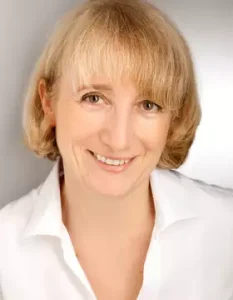
Max Planck Institute of Biochemistry
Germany
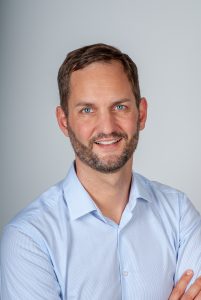
Institute of Molecular Biotechnology
Austria

Institute of Human Genetics
France
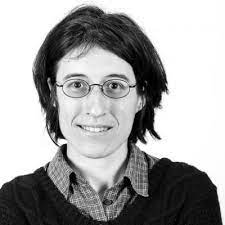
Institut de Biologie Valrose
France

Friedrich Miescher Institute for Biomedical Research
Switzerland
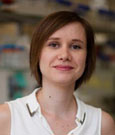
Max Delbrück Center for Molecular Medicine
Germany
(Virtual Speaker)
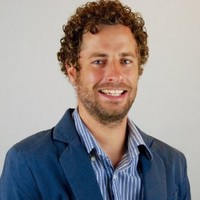
EMBL Heidelberg
Germany
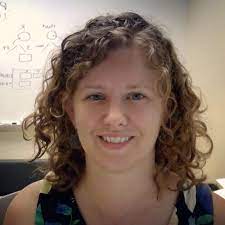
Duke University
USA
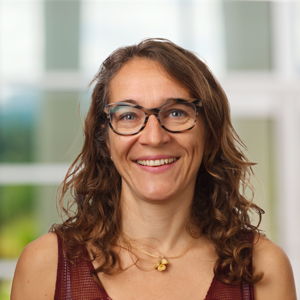
UF Scripps Biomedical Research
USA
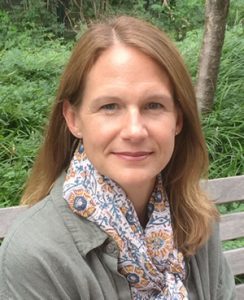
University of Pennsylvania
USA
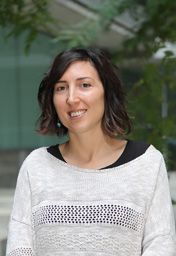
Centre for Genomic Regulation
Spain
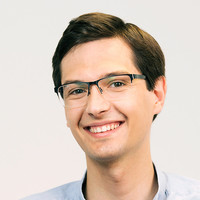
Research Institute of Molecular Pathology
Austria
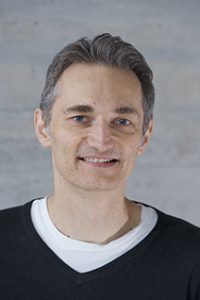
ETH Zurich
Switzerland
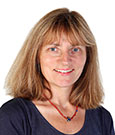
EMBL Heidelberg
Germany
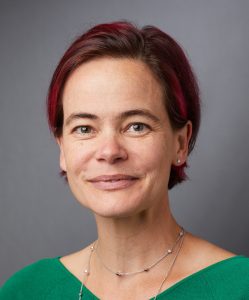
Yale University
USA
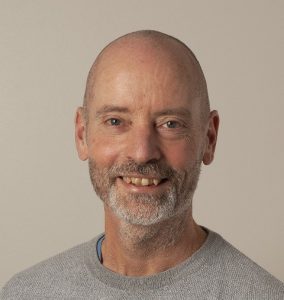
Aarhus University
Denmark
Got something to say? Tweet it! #EESRNA
| Time (Europe/Berlin) | Speaker |
|---|---|
| 12:00 – 14:00 | Arrival and registration with light refreshments |
| 12:30 – 13:30 | Pre-conference workshop “The unbiased characterisation of novel human protein coding genes using Ribosome Profiling” by Immagina Biotechnology S.r.l. (registration required) |
| 14:00 – 14:15 | Opening remarks by scientific organisers |
| 14:15 – 15:00 | Keynote lecture: Should it stay or should it go: the RNA exosome at the crossroads of RNA processing and decay Elena Conti – Max Planck Institute of Biochemistry, Germany |
| 15:00 – 18:30 | Session 1 – Co-transcriptional events Chairs: Reini Luco – Institut Curie, France Michaela Müller-McNicoll – Goethe University Frankfurt, Germany |
| 15:00 – 15:30 | Real time tracking of transcription translation coupling Olivier Duss – EMBL Heidelberg, Germany Not available on demand |
| 15:30 – 15:45 | Histone H1 regulates non-coding RNA turnover on chromatin in a m6A-dependent manner María Gómez – CBMSO (CSIC/UAM), Spain |
| 15:45 – 16:00 | Understanding the basis of transcription within heterochromatin Maja Gehre – Institute of Molecular Biotechnology (IMBA), Austria Not available on demand |
| 16:00 – 16:45 | Coffee break and Meet the speakers with: Elena Conti and Olivier Duss |
| 16:45 – 17:00 | Pol II pausing as a milestone on the road to complex animals Alexandra Chivu – Cornell University, USA |
| 17:00 – 17:15 | Extending the Hox molecular repertoire: from transcription to mRNA splicing Julie Carnesecchi – Centre National de la Recherche Scientifique (CNRS), France |
| 17:15 – 17:30 | A direct interaction between CPF and Pol II links RNA 3ʹ-end processing to transcription Manuel Carminati – MRC Laboratory of Molecular Biology, UK |
| 17:30 – 17:45 | U1 snRNP induces a CDK12-dependent checkpoint to protect transcripts from incorrect poly(A) site usage Jens Bohne – Hannover Medical School, Germany Not available on demand |
| 17:45 – 18:00 | Structural basis of non-coding roX RNA remodelling during dosage compensation Janosch Hennig – EMBL Heidelberg, Germany Not available on demand |
| 18:00 – 18:30 | Flash talk session 1 (2 min, 1 slide) #49 – Maxime Wery #91 – Alla Fedorova #93 – Sebastian Filbeck #123 – Dagmar Klostermeier #127 – Pawel Krawczyk #137 – Szu Shuo Lee #145 – Braulio Martinez #151 – Matthias Bastian Miosga #159 – Tsimafei Navalayeu #163 – Reini Luco Not available on demand |
| 18:30 – 19:30 | Poster viewing |
| 19:30 – 21:00 | Dinner in EMBL Canteen |
| 21:00 – 22:30 | Social event: science pub quiz in EMBL Canteen |
| 21:00 – 22:30 | Social event: after dinner drinks in ATC Foyer |
| Time (Europe/Berlin) | Speaker |
|---|---|
| 09:00 – 12:15 | Session 2 – RNA processing and modification Chairs: Aldema Sas-Chen – Tel Aviv University, Israel Sara Zaccara – Columbia University, USA |
| 09:00 – 09:30 | Decoding the epitranscriptome at single molecule resolution Eva Maria Novoa Pardo – Centre for Genomic Regulation, Spain |
| 09:30 – 09:45 | The novel nuclease complex PUCH processes piRNA 5’ ends in C. elegans Nadezda Podvalnaya – IMB Mainz, Germany |
| 09:45 – 10:15 | RNA processing in the human immune system Kristen Lynch – University of Pennsylvania, USA |
| 10:15 – 10:45 | Coffee break and Meet the speakers with: Eva Maria Novoa Pardo, Kristen Lynch and Stacy Horner |
| 10:45 – 11:15 | RNA modifications at the virus-host interface Stacy Horner – Duke University, USA Not available on demand |
| 11:15 – 11:30 | Functional splicing network: systematic approach towards understanding splicing regulation Malgorzata Ewa Rogalska – Centre for Genomic Regulation, Spain |
| 11:30 – 11:45 | Molecular bases of m6A regulation by non-canonical readers Andres Ramos – University College London, UK Not available on demand |
| 11:45 – 12:00 | The S. cerevisiae m6A-reader Pho92 promotes timely meiotic recombination by controlling key methylated transcripts Bertrand Séraphin – Institute of Genetics and Molecular and Cellular Biology (IGBMC), France Not available on demand |
| 12:00 – 12:15 | Flash talk session 2 (2 min, 1 slide) #153 – Miha Modic #171 – Marco Payr #183 – Diana Ribeiro #189 – Julian König #211 – Komal Soni #217 – Xue Strobl #221 – Anan Tarabieh Not available on demand |
| 12:15 – 13:45 | Lunch with Meet the editors (12:45 – 13:30) |
| 13:45 – 15:00 | Session 2 – RNA processing and modification (continued) Chairs: Aldema Sas-Chen – Tel Aviv University, Israel Sara Zaccara – Columbia University, USA |
| 13:45 – 14:15 | Mechanism and biology of RNA decay Stefan Ameres – Institute of Molecular Biotechnology, Austria |
| 14:15 – 14:45 | The YTHDF m6A readers are the key mechanism to dynamically regulate m6A mRNA degradation Sara Zaccara – Columbia University, USA Not available on demand |
| 14:45 – 15:00 | HIV-1 infection affects NAD capping of host cell RNA Hana Cahova – Institute of Organic Chemistry and Biochemistry of the CAS, Czech Republic |
| 15:00 – 15:45 | Coffee break and Meet the speakers with: Stefan Ameres, Clemens Plaschka and Florence Besse |
| 15:45 – 17:30 | Session 3 – RNA transport and localisation Chairs: Ina Huppertz – Max Planck Institute for Biology of Ageing, Germany Suzan Ruijtenberg – Utrecht University, The Netherlands |
| 15:45 – 16:15 | How to recognise and package nuclear mRNA Clemens Plaschka – Research Institute of Molecular Pathology, Austria |
| 16:15 – 16:30 | Material properties of RNP granules are tuned for their in vivo function Mainak Bose – EMBL Heidelberg, Germany |
| 16:30 – 16:45 | Hyperphosphorylation of mRNA decapping enzyme DCAP-2 and scaffold protein interactions govern embryonic mRNP condensates Thomas Duchaine – McGill University, Canada |
| 16:45 – 17:15 | Transport and remodeling of RNP granules in the nervous system Florence Besse – Institut de Biologie Valrose, France Not available on demand |
| 17:15 – 17:30 | Flash talk session 3 (2 min, 1 slide) #139 – Tina Lence #227 – Elise van der Salm #231 – Ellen van Vroonhoven #48 – Valerie Hilgers #52 – Pierre-Emmanuel Gleizes #60 – Fabien Bonneau Not available on demand |
| 17:30 – 19:00 | Poster session 1 (odd) List of posters |
| 19:00 | Free evening |
| Time (Europe/Berlin) | Speaker |
|---|---|
| 09:00 – 12:00 | Session 4 – RNA surveillance and decay Chairs: Niels H. Gehring – University of Cologne, Germany Sebastian Falk – University of Vienna, Austria |
| 09:00 – 09:30 | Condensation of a nuclear mRNA export factor regulates mRNA transport during stress Karsten Weis – ETH Zürich, Switzerland Not available on demand |
| 09:30 – 09:45 | Dual agonistic and antagonistic roles of ZC3H18 provides for co-activation of distinct nuclear RNA exosome decay pathways Patrik Polák – Aarhus University, Denmark Not available on demand |
| 09:45 – 10:00 | Deadenylation rate does not affect fast RNA degradation in yeast Cosmin Saveanu – Institut Pasteur, France |
| 10:00 – 10:45 | Coffee break and Meet the speakers with: Karsten Weis kindly sponsored by Eclipse Bioinnovations |
| 10:45 – 11:00 | A novel conditional Smg6 mouse model uncovers the role of NMD in circadian timekeeping David Gatfield – University of Lausanne, Switzerland |
| 11:00 – 11:15 | Conserved Erh1 protein orchestrates Mmi1 YTH-guided multi-modal mRNA silencing Auriane Rakitch – Université Grenoble Alpes, France |
| 11:15 – 11:45 | Synonymous codon usage regulates translation initiation Olivia Rissland – University of Colorado Anschutz Medical Campus, USA |
| 11:45 – 12:00 | Flash talk session 4 (2 min, 1 slide) #82 – Vladimir Despic #96 – Erika Girardi #112 – Francesco Ielasi #120 – Wael Kamel #130 – Sabrina Kueckelmann #138 – Young-suk Lee #146 – Santiago Martinez Lumbreras Not available on demand |
| 12:00 – 13:30 | Lunch |
| 13:30 – 16:30 | Session 5 – Translation Chairs: David Gatfield – University of Lausanne, Switzerland Olivia Rissland – University of Colorado Anschutz Medical Campus, USA |
| 13:30 – 14:00 | Massively parallel identification of zipcodes in primary cortical neurons Marina Chekulaeva – Max Delbrück Center for Molecular Medicine, Germany (Virtual Speaker) |
| 14:00 – 14:15 | Dynamics of human tRNA repertoires as a function of cell identity Lexi Gao – Max Planck Institute for Biochemistry, Germany |
| 14:15 – 14:30 | Ribosomal quality control in repeat-associated non-AUG translation of GC rich repeats Yi-Ju Tseng – University of Michigan, USA |
| 14:30 – 15:15 | Coffee break and Meet the speakers with: Marina Chekulaeva and and Katrin Karbstein kindly sponsored by Eclipse Bioinnovations |
| 15:15 – 15:45 | Quality control during ribosome assembly and function Katrin Karbstein – Scripps Research, USA |
| 15:45 – 16:00 | Maximizing therapeutic protein yield through human 5′ UTR optimization Cole Lewis – Yale University, USA |
| 16:00 – 16:15 | Hypoxic Translation is controlled by 3’UTR and the non-canonical Cap-binding Factor eIF4EHP in D. melanogaster Clara Hody – Université Libre de Bruxelles, Belgium Not available on demand |
| 16:15 – 16:30 | Flash talk session 5 (2 min, 1 slide) #158 – Isabel S. Naarmann-de Vries #184 – Nina Ripin #194 – Aldema Sas-Chen #204 – Sahil Sharma #220 – Jan-Niklas Tants #234 – Joseph Waldron #246 – Roko Zaja Not available on demand |
| 16:30 – 18:00 | Poster session 2 (even) |
| 18:00 – 20:00 | Gala dinner in EMBL Canteen |
| 20:00 – 22:00 | Social event: after dinner drinks with live music in ATC Foyer |
| 22:00 – 00:00 | Social event: DJ in ATC Foyer |
| Time (Europe/Berlin) | Speaker |
|---|---|
| 09:30 – 12:00 | Session 6 – mRNA regulation Chairs: Ayala Shiber – Technion-Israel Institute of Technology, Israel Jeffrey Chao – Friedrich Miescher Institute for Biomedical Research, Switzerland |
| 09:30 – 10:00 | Imaging the life and death of mRNAs in living cells Jeffrey Chao – Friedrich Miescher Institute for Biomedical Research, Switzerland |
| 10:00 – 10:15 | Alternative splicing of the stress-sensitive regulator CIRBP tilts the cellular response to infection by a bacterial pathogen Morgane Corre – École normale supérieure – PSL, France |
| 10:15 – 10:45 | Deciphering the dynamics of divergent co-translational assembly pathways Ayala Shiber – Technion – Israel Institute of Technology, Israel Not available on demand |
| 10:45 – 11:15 | Coffee break and Meet the speakers with: Jeffrey A. Chao, Edouard Bertrand and Bernd Bukau |
| 11:15 – 11:45 | Single molecule imaging reveals a new mechanism for RNA transport and local translation Edouard Bertrand – Institute of Human Genetics, France |
| 11:45 – 12:00 | Mechanism of ribosome-associated mRNA degradation in the tubulin autoregulation pathway Markus Höpfler – MRC Laboratory of Molecular Biology, UK |
| 12:00 – 12:45 | Keynote lecture: Co-translational folding and assembly of newly synthesized proteins revealed by ribosome profiling Bernd Bukau – Center for Molecular Biology of Heidelberg University (ZMBH) and German Cancer Research Center (DKFZ), Germany |
| 12:45 – 13:00 | Closing remarks |
| 13:00 | Packed lunch and departure |
| 14:00 | Optional: Shuttle bus to Frankfurt Airport (Terminal 1) Tickets can be purchased during the conference for 25 EUR with credit card only |
On-site registration fees include admission, conference materials, COVID-19 safety measures, meals and coffee breaks. Participants are expected to book and pay their own accommodation and travel expenses.
Virtual registration fees include access to all of the talks (livestreamed and on demand) and facility to submit questions.
| On-site Academia | €700 |
| On-site PhD Student | €600 |
| On-site Industry | €900 |
| Virtual Academia | €175 |
| Virtual PhD Student | €125 |
| Virtual Industry | €225 |
NO visa support letters will be issued until payment of the registration fee is confirmed.
Accredited journalists may be eligible to register for complimentary press registration. Registrants may be required to provide accreditation or equivalent proof of press membership after registration. Please contact Diah Yulianti for more information. Please note that we do not offer complimentary registrations for editors of scientific journals.
Registration will be on a first come, first served basis. Your place can only be confirmed after payment of the registration fee. If you are added to our waiting list, please consider taking advantage of our offerings to participate virtually.
On-site participants: Types of payments accepted are international bank transfers and credit card payments.
Virtual participants: We are only able to accept card payments. In exceptional cases we can accept bank transfers. Please contact events@embl.de for details.
Only participants registering to attend the on-site event are eligible to submit an abstract. Abstracts will not be accepted from virtual participants.
After registration you can submit your abstract via a separate link that will be provided in the email confirmation. Alternatively, you can access the link on the confirmation page directly after registering. The same login credentials are used for both processes.
Please note:
Abstract body: The limit of 2000 characters refers to manually typed text and excludes spaces. If an error occurs try using a different web browser (preferably Google Chrome or Mozilla Firefox).
If you copy-paste the text into the form, hidden formatting might still be included which may cause the text to exceed the 2,000 character limit resulting in an error message. We recommend you clear all formatting before pasting in the text.
If you have special symbols in your text, make sure you are using Unicode characters, otherwise these will not be recognised.
Title: The title should not exceed 20 words. Only the first word of the title should start with a capital letter and the rest should be lowercase.
Authors and affiliations: Please fill in the author’s details as requested in the online form. The compulsory fields are: First Name, Last Name, Organisation Name (Affiliation or Company), Country and Email.
Kindly mark only one author in the role of First Author and please don’t forget to indicate who will be the Presenter.
Please enter your co-authors correctly via the system by adding accounts together with their organisation/institute. Do not copy-paste them into the body of the abstract text, as they will not be indexed in the abstract book.
Presentation types: When submitting your abstract, you can apply for an oral or poster presentation. A selection process will take place with the results announced 2-3 weeks after the abstract submission deadline.
For detailed instructions on how to submit a conference abstract, follow the instructions provided in this video.
Please check our FAQs pages for further information on how to submit an abstract.
Limited financial assistance is provided by the EMBL Advanced Training Centre Corporate Partnership Programme and EMBO in the form of both registration fee waivers and travel grants. Availability is limited to participants attending on-site events in Heidelberg and will be indicated during the abstract or motivation letter submission process.
Your place in the meeting is only confirmed by paying the registration fee, which is mandatory even when receiving a fee waiver.
The fee waiver will cover the registration sum that you have paid to attend the course or conference.
The travel grant will cover the cost of travel (airfare, train, bus, taxi, accommodation, visa, and/or registration fees*) and is provided up to specified caps which are normally as follows:
– up to €400 for participants travelling to an EMBL Course, EMBL Conference or EMBO|EMBL Symposium from within Europe.
– up to €1000 for participants travelling to an EMBL Course, EMBL Conference or EMBO|EMBL Symposium from outside Europe.
– up to €500 for any participant travelling to an EMBO Practical Course or EMBO Workshop.
– up to €1000 for any participant working in Chile, India, Singapore or Taiwan travelling to an EMBO Practical Course or EMBO Workshop.
*Registration fees are only covered for EMBO Practical Courses or EMBO Workshops
The organisers may reduce the grant cap to accommodate more participants. Recipients will be notified of their travel cap amount when they are informed of the outcome of their application. Original receipts must be provided with your signature for all costs incurred within two months of completion of travel. Scanned copies cannot be accepted.
You may apply for financial assistance when submitting your motivation letter for courses, and abstract for conferences. In your application, you will be asked to answer questions regarding why your lab cannot fund your attendance and how your attendance will make a difference to your career. Application for financial support will not affect the outcome of your registration application.
The scientific organisers will select the recipients of all financial assistance during the motivation letter or abstract selection process. Results will be announced approximately 6-8 weeks before the event start date, however for some events this may be delayed. Selection results do not impact your admission to the meeting. Selection is based on your current work or study location, the reasons for needing financial support and the impact this event will have on your career.
Costs will be reimbursed after the meeting only once a reimbursement form and original receipts (from travel costs) have been received.
See our list of external funding opportunities and information on attending a conference as an event reporter.
For further information about financial assistance please refer to the FAQ page.
Accommodation is not included in the conference registration fee.
As further changes in our events are possible due to COVID-19, you should book flights, trains and hotels with flexible options and favourable cancellation conditions.
The hotels below have rooms on hold for participants until Sunday, 11 September, in some cases at special rates. Please quote the booking code EES22-10 and confirm the exact price of the room with the hotel directly.
Conference shuttle buses are free of charge for participants, and depart from designated bus stops near the hotels to EMBL and back, mornings and evenings.
The bus stops for this conference are:
View Conference shuttle bus stops and hotels in a larger map. Please note that not every bus stop will be used for every event.
Download the conference bus schedule here.
Address: EMBL, Meyerhofstraße 1, 69117 Heidelberg, Germany. For further information on getting to EMBL Heidelberg visit Public Transportation to the Venue. For information about accommodation and local transportation please refer to the FAQ page.
All meals and coffee breaks are included in the registration fee. Our catering staff will prepare a wide variety of vegetarian meals, meat and fish dishes, soups, pasta, fresh fruit and vegetables, as well as a variety of desserts.
Please wear your badge at all times when serving yourself.
No food or drinks are allowed in the auditorium.
There are lockers available next to the stairs leading down into the Auditorium. You will find some of those equipped with sockets to charge your smartphone/tablet etc.
In most places the electricity is 220 volts AC (50 cycles). An adaptor and a plug that fits the German socket may be needed for your appliances/laptop (i.e. American, Japanese, etc.). A USB charging station for electronic devices is available at the registration desk.
If you are interested in purchasing an EMBL souvenir (products presented in the glass display in the registration area), please ask at the registration desk for more information.
Please read EMBL’s COVID-19 safety policy for on-site events.
Do not smoke in any EMBL building.
Eating and drinking is prohibited in the Auditorium and all laboratories.
Do not enter any restricted areas or the laboratories unless instructed to do so.
If first aid is required …
In case of fire …
Beyond first aid…
Please remember to bring your own medication, if needed, to the conference. Note that the next pharmacy is a 4-minute drive from the EMBL, but for many medications you will be required to see a doctor to get a prescription.
Ensure in advance that your medical insurance will cover you during your visit in the event that you do need to see a doctor while in Heidelberg. In any case, the EMBL Course and Conference Office will assist you to get to the pharmacy and a doctor of your choice if necessary.
Wi-Fi is available everywhere on the premises (no password required), just log on to ATC-Guest. The eduroam network (secure, world-wide roaming access service developed for the international research and education community) is also available.
‘’Lost and Found’’ are kept at the registration desk until the end of the conference.
There are lockers available on-site to store your luggage, which require a 2 EURO coin to operate. There is another luggage room on level E0, which is free to use but remains unlocked during the conference.
There is a nursing room available in the ATC Rooftop Lounge on level A29.
During the conference an EMBL Photographer may be taking photographs. If you would not like to appear in these, please inform the photographer or a member of the Course and Conference Office.
We can help printing your boarding passes/train ticket. Please send it to events@embl.de and collect your print-outs at the registration desk.
There is a room for prayer, mediation and yoga located on level E0 behind the Auditorium. Please be respectful of other participants using the room.
A variety of activities in Heidelberg can be found on the website of Heidelberg Marketing
During the event we provide conference shuttle busses to and from EMBL. In addition, there is the public bus 39A that serves the EMBL campus and taxis can be easily booked at any time. Information on the conference shuttle busses can be found on the individual event website and more detailed information on travelling to EMBL can be found on our Travel Information page.
| Where is the nearest Covid test centre? | Wo ist das nächste Covid-Testzentrum? |
| Hello | Hallo |
| Goodbye | Auf Wiedersehen |
| Good morning | Guten Morgen |
| Good afternoon | Guten Tag |
| Good evening | Guten Abend |
| Good night | Gute Nacht |
| I’m sorry | Tut mir leid |
| Excuse me… | Entschuldigen Sie |
| How are you? | Wie gehts? |
| I’m fine thanks. And you? | Mir geht es gut , danke, und dir/Ihnen? |
| What is your name | Wie heisst du? Wie heissen Sie? |
| My name is | Ich heisse |
| Do you speak English | Sprechen Sie Englisch? |
| I don’t understand | Ich verstehe nicht |
| Please speak more slowly | Können Sie bitte langsamer sprechen |
| Thank you | Dankeschön |
| Where is the toilet? | Wo ist die Toilette? |
| Please call me a taxi | Bitte rufen Sie mir ein Taxi |
| How do I get to….? | Wie komme ich zum/zur…..? |
| A beer/two beers please | Ein Bier/zwei Bier bitte |
| A glass of red/white wine please | Ein Glas Rot/Weisswein bitte |
| The menu, please | Die Speisekarte, bitte |
| Is there a local speciality? | Gibt es eine Spezialität aus dieser Gegend? |
| I’m Vegetarian | Ich bin Vegetarier |
| It was delicious | Es war hervorragend |
| The bill, please | Die Rechnung, bitte |
| I have a headache | Ich habe Kopfschmerzen |
| I have a sore throat | Ich habe Halsschmerzen |
| My stomach hurts | Ich habe Magenschmerzen |
| I’m allergic to | Ich bin allergisch gegen |
| I need a doctor who speaks English | Gibt es einen Arzt, der Englisch spricht? |
Please note that only on-site participants are able to submit abstracts and participate in the poster sessions.
We are using an event platform for this conference. More information about the platform will be shared ahead of the conference.
Additional information can be found in our Code of Conduct.
It is important to stay healthy and move around, especially when you are attending an event virtually. We have put together a few coffee break stretches and yoga videos in the conference platform for you to enjoy during the event.
Please use the Q&A function in the event platform.
If you have any other questions, you can go to the Help Desk in the event platform. Click on ‘more’ on the top menu and click Help Desk.
The programme is planned based on the Europe/Berlin time zone, unless otherwise stated. Please take your time zone into consideration when planning your attendance.
Please find additional information including FAQs, terms and conditions, COVID-19 safety policy and travelling to EMBL on our Information for Participants page.
COVID-19 information for on-site events at EMBL Heidelberg can be found in our COVID-19 FAQs.
Silver sponsor
Bronze sponsors
Symposium sponsor
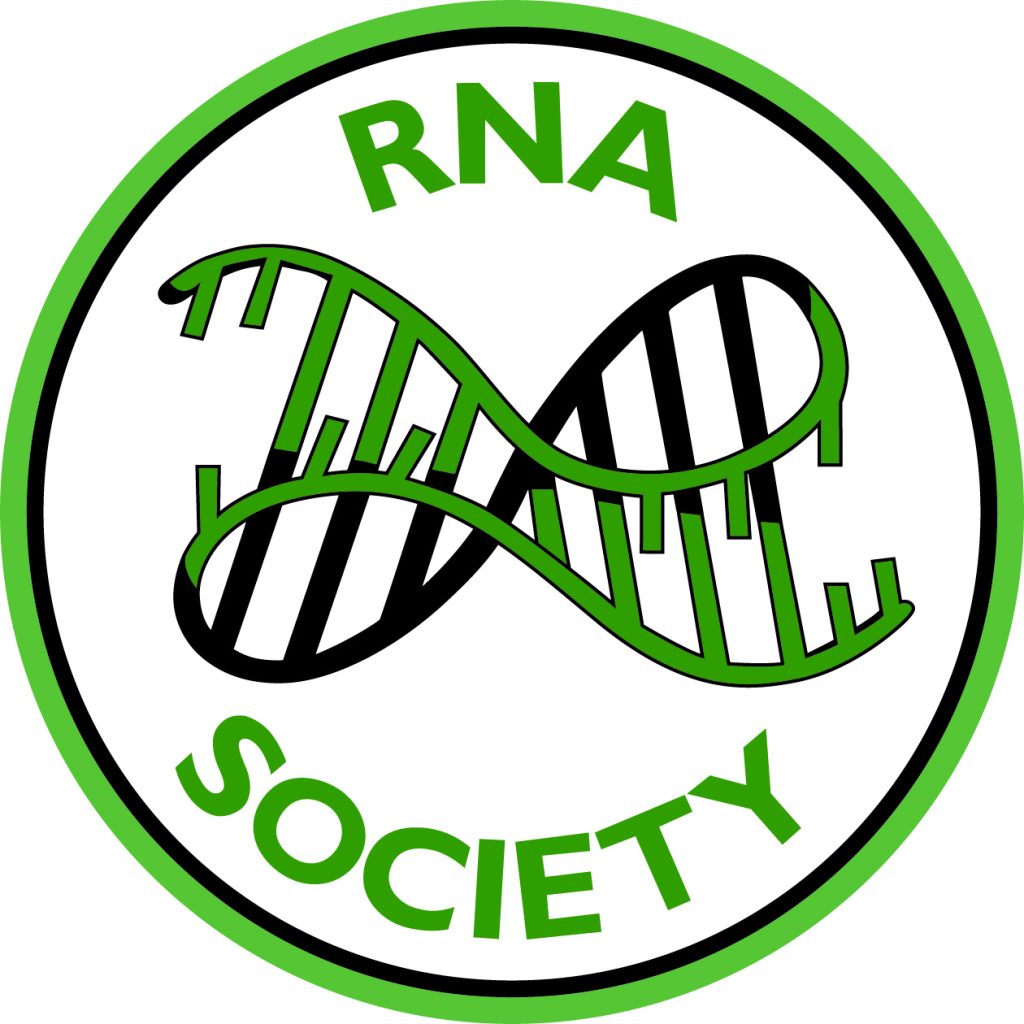
Media partners
EMBO reports, an EMBO Press journal
International Union of Biochemistry and Molecular Biology
Open Biology, a Royal Society journal
Sponsorship Opportunities
We offer a variety of event sponsoring possibilities, with the flexibility to select a set sponsorship package or combine individual sponsorship options to suit your event budget. Discounts are available for companies sponsoring multiple events at EMBL Heidelberg. View other conferences, or contact sponsorship@embl.de for further information on sponsoring possibilities.
If you are interested in becoming a media partner of this event, please visit our media partnerships webpage.
EMBL wishes to warn sponsors of EMBL conferences and courses of fraudulent schemes purporting to offer sponsorship opportunities on behalf of EMBL or affiliated with EMBL officials. One current scam campaign of which we are aware is conducted using the name ‘Judy Eastman’ (judy@gopcontact.a2hosted.com) and entails approaches to sponsors offering sponsorship opportunities on EMBL’s behalf. Please be kindly advised that all relevant communication regarding sponsorship of EMBL conferences, symposia and courses is handled by EMBL directly and is sent from an official EMBL account. EMBL does not work with any external providers on sponsorship acquisition.
Please also note that:
Suspicious communications purportedly from, for or on behalf of EMBL should be reported to EMBL at the following email address sponsoring@embl.de.
EMBO | EMBL Symposia promote scientific communication and collaboration in the European research area. They provide scientists with a platform to discuss and exchange ideas on forward-looking topics and new developments in the life sciences.
Topics emphasise upcoming developments and the interdisciplinary nature of related fields. Jointly funded and organised by EMBO and EMBL – and complementary to their respective courses, workshops, and conference programmes – the symposia promote scientific communication and collaboration.
All symposia are held in the EMBL Advanced Training Centre (ATC) in Heidelberg, Germany, or virtually.
Industry webinar will be hosted by our sponsor Immagina Biotechnology S.r.l. prior to the EMBO | EMBL Symposium: The complex life of RNA
on Wednesday 12 October 2022, 12:30 – 13:30
Participation in this workshop is free of charge for registered conference attendees. The number of available places is limited (first come, first served). All registered conference attendees will receive an email with a registration link.
ABSTRACT
Speaker: Dr. Marc Eamonn Healy, University of Zürich
Carcinogenesis and progression of cancer is fundamentally based on changes to the genome of the tumor cell which results in a decisive growth advantage. However, those exact genetic changes which lead to faster cell growth can also represent potential targets for molecular therapies. Unfortunately, for many cancer types, the identification of such genes has proven largely unsuccessful. In this light, it may be time to “think outside of the box” when it comes identifying potential novel therapeutic targets. Over the last number of years, it has become clear that mammalian protein-coding genomes are incomplete. Recently, challenges to traditional criteria governing protein annotation have identified thousands of novel protein coding non-canonical open reading frames (ncORFs) which have proven to be essential for a number of critical cellular processes ranging from immunology to cellular survival. Our research aims to explore unchartered genetic areas by comprehensively characterising the ncORFs which are indispensable for the survival of non-transformed and cancer cells. By combining ribosome profiling with loss of function CRISPR-Cas9 screening, we have the ability to define and characterise the complete protein coding capacity of the human genome in an unbiased manner. The emerging field of novel ncORF-encoded proteins has the potential to herald a new chapter in cancer research. The unbiased identification of a completely new database of functional proteins may potentially uncover missing pieces to currently unanswerable molecular questions in cancer biology.
Date: 12 - 15 Oct 2022
Location: EMBL Heidelberg and Virtual
Venue: EMBL Advanced Training Centre
Deadline(s):
Abstract submission: Closed
Registration (On-site): Closed
Registration (Virtual): Closed
Organisers:
Contact: Diah Yulianti